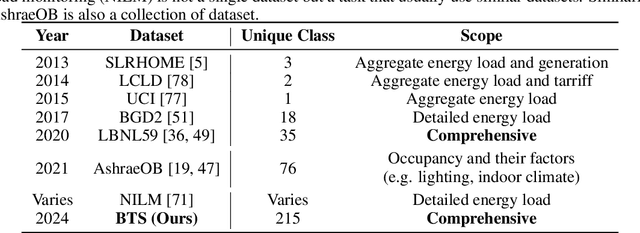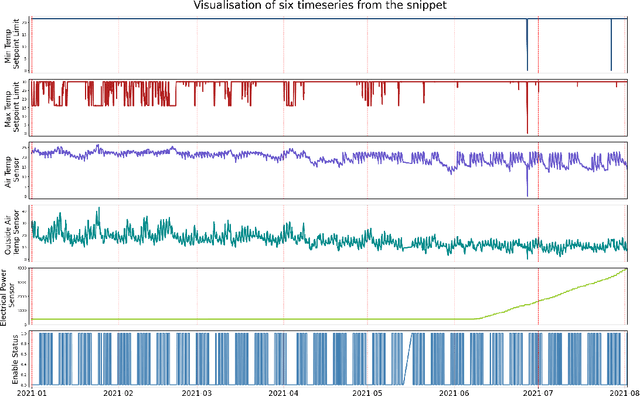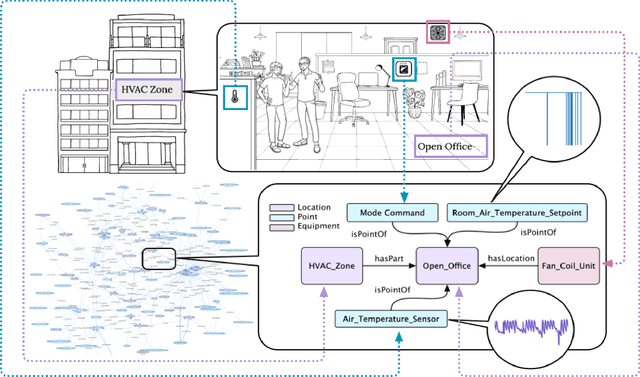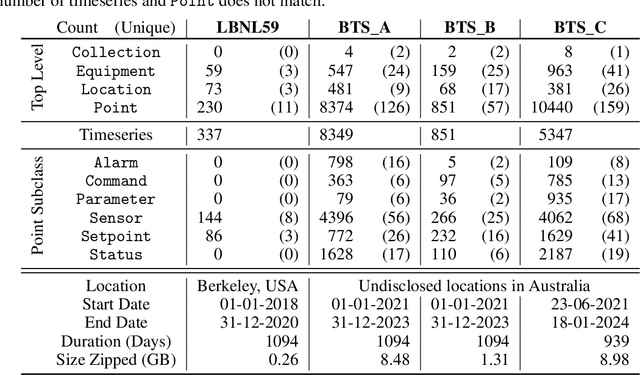Matthew Amos
BTS: Building Timeseries Dataset: Empowering Large-Scale Building Analytics
Jun 18, 2024



Abstract:Buildings play a crucial role in human well-being, influencing occupant comfort, health, and safety. Additionally, they contribute significantly to global energy consumption, accounting for one-third of total energy usage, and carbon emissions. Optimizing building performance presents a vital opportunity to combat climate change and promote human flourishing. However, research in building analytics has been hampered by the lack of accessible, available, and comprehensive real-world datasets on multiple building operations. In this paper, we introduce the Building TimeSeries (BTS) dataset. Our dataset covers three buildings over a three-year period, comprising more than ten thousand timeseries data points with hundreds of unique ontologies. Moreover, the metadata is standardized using the Brick schema. To demonstrate the utility of this dataset, we performed benchmarks on two tasks: timeseries ontology classification and zero-shot forecasting. These tasks represent an essential initial step in addressing challenges related to interoperability in building analytics. Access to the dataset and the code used for benchmarking are available here: https://github.com/cruiseresearchgroup/DIEF_BTS .
A Gap in Time: The Challenge of Processing Heterogeneous IoT Point Data in Buildings
May 23, 2024Abstract:The growing need for sustainable energy solutions has driven the integration of digitalized buildings into the power grid, utilizing Internet-of-Things technology to optimize building performance and energy efficiency. However, incorporating IoT point data within deep-learning frameworks for energy management presents a complex challenge, predominantly due to the inherent data heterogeneity. This paper comprehensively analyzes the multifaceted heterogeneity present in real-world building IoT data streams. We meticulously dissect the heterogeneity across multiple dimensions, encompassing ontology, etiology, temporal irregularity, spatial diversity, and their combined effects on the IoT point data distribution. In addition, experiments using state-of-the-art forecasting models are conducted to evaluate their impacts on the performance of deep-learning models for forecasting tasks. By charting the diversity along these dimensions, we illustrate the challenges and delineate pathways for future research to leverage this heterogeneity as a resource rather than a roadblock. This exploration sets the stage for advancing the predictive abilities of deep-learning algorithms and catalyzing the evolution of intelligent energy-efficient buildings.
 Add to Chrome
Add to Chrome Add to Firefox
Add to Firefox Add to Edge
Add to Edge